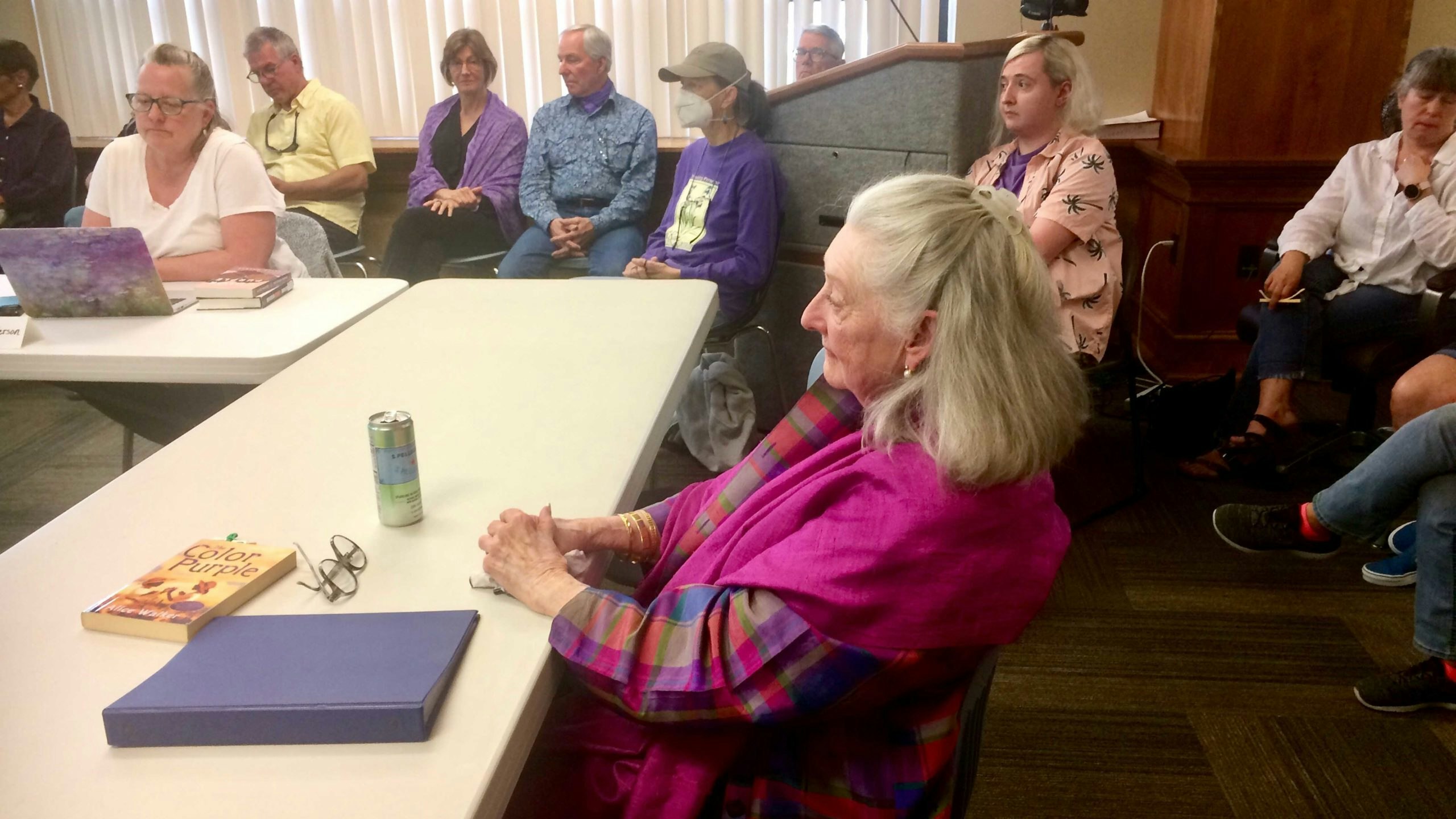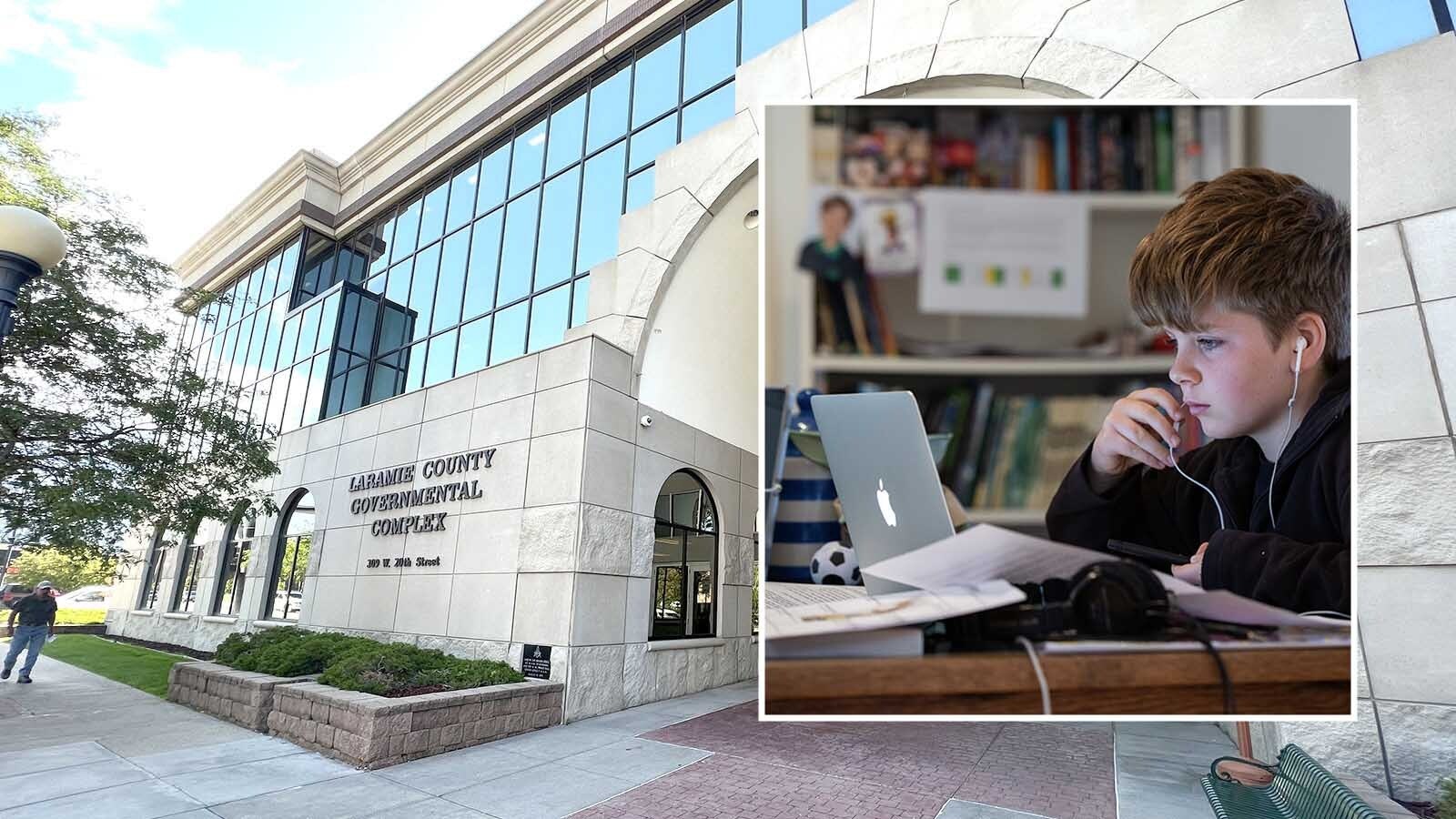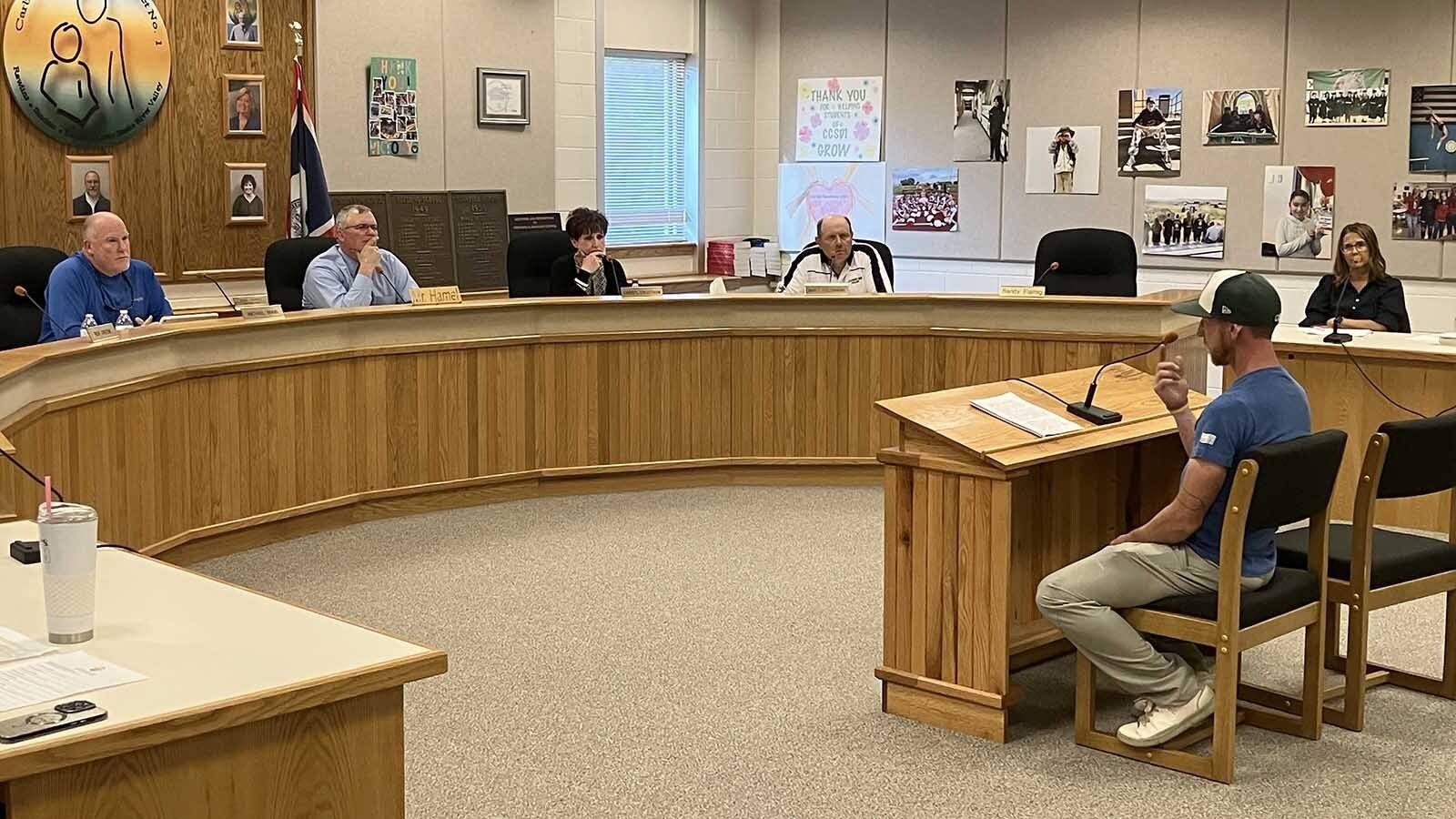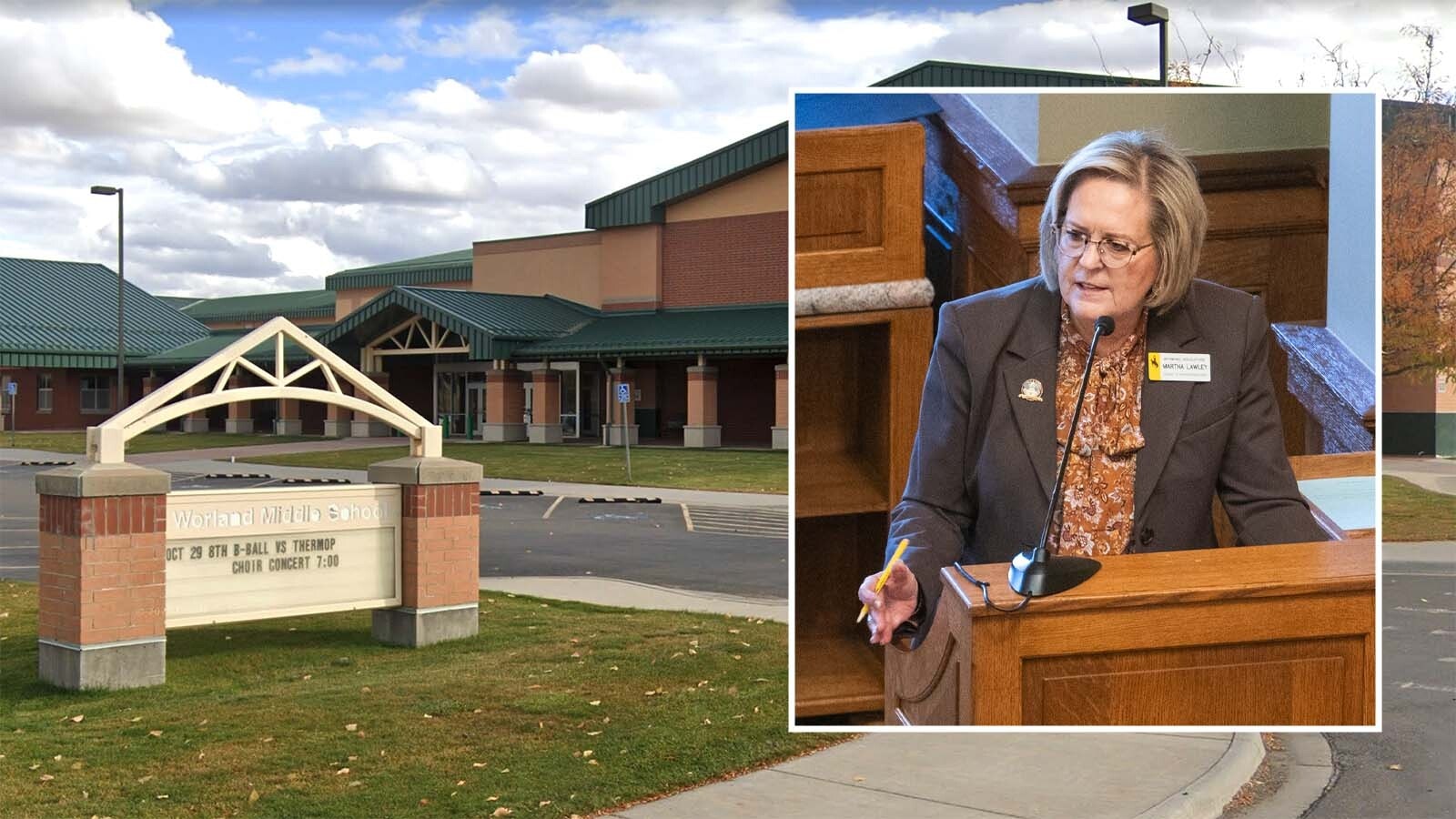The Cody School District’s Educational Resource Complaint Committee resisted a push to ban two books on Thursday.
The committee’s decisions to oppose recommending banning “The Color Purple” and “How to be an Antiracist” from the high school library, came in response to complaints made about the books by Cody residents Carol Armstrong and Jim Vetter. These books both discuss the topic of race and inequality in America.
Armstrong levied the complaint against “The Color Purple,” a 1982 Pulitzer Prize winning book written by Alice Walker. The book is a fictional novel of an African American woman in the 1940s American South.
Within her complaint, Armstrong, 88, mentioned she has also found around 100 books she deems offensive within the school library.
Book-banning campaigns are nothing new to the Cody School District. In 2018 the school board removed “A Bad Boy Can be Good for a Girl” from its shelves. Earlier this spring, Cody resident Sheila Leach filed a complaint about the book “The Handmaid’s Tale,” which the committee did not recommend banning.
Under school policy, the committee makes a recommendation to the school board about what action to take on a particular book, but the board does not have to act unless the complainant files an appeal of the committee’s decision.
Leach has filed an appeal on her book, which is scheduled to be considered by the school board on Tuesday. She said she has little faith the board will decide to remove the book because of its current makeup.
Armstrong criticized “The Color Purple” as being vulgar, depressing and unhelpful for growing minds. She also contends the book to be pornographic in nature because it discusses rape and incest.
“The decisions being made by our library about the type of books that are being selected and placed in our libraries is critical and will undoubtedly affect the minds and attitudes of our future leaders and citizens,” Armstrong said.
District Librarian Jennisen Lucas disagreed in a speech given before the committee, saying it’s the responsibility of parents to discuss and supervise the books their children are checking out from the library.
The school currently has a system that alerts parents anytime their children check a book out of the library, however this system will adjust next school year so that parents must “opt-in” to the notification system to get these alerts.
Despite the book winning numerous awards, being turned into a Broadway play and major motion picture, Armstrong said these accolades do not make it appropriate for adolescent reading.
“Is it any wonder that there is a rise in disturbed and confused youth in our schools because of gender ideology and messages that are being sent to our young impressionable kids,” Armstrong said.
Lucas said “vulgar” language was only used occasionally in “The Color Purple” and “many reviews show” the book as recommended for readers 15-16 years old and up, and sometimes even younger age groups.
“When librarians are looking at that, they’re taking a look at what various published reviews are saying,” she said. Lucas is the president of the American Association of School Librarians and said the trend of book banning is rampant right now, with some groups proposing bans of more than 50 books at time and librarians facing death threats related to the effort.
Lucas said even though these books may be challenging reads for young adults, she said they provide valuable perspective for students in Cody, a community she finds has many members who are “backwards racially,” and possessing a “racist ideation.”
Even though she doesn’t have children or grandchildren in the school district, Armstrong previously taught elementary school, and mentioned the tax dollars she has spent for 60 years funding the Cody School District as part of her justification for her complaint. Since the Korean War, she said, she has witnessed a “continual moral decline in our society and slow unraveling of our culture.”
“As a taxpayer, I’m saddened our school does not hold our students to a higher standard,” Armstrong said.
The committee voted 9-0 against banning both books. This nine-person panel is made up of teachers and parents in the school district who are expected to read each book they review.
“It’s important we consider context and taking things out of the context they were written in,” committee member Yancy Bonner said.
A brief applause greeted Bonner’s argument that banning the “The Color Purple” would infringe on student’s First Amendment rights. About 10 people in the audience wore purple in solidarity against the ban.
Although the push for book banning has typically come from more conservative circles, on Wednesday in Seattle, about 30 Amazon employees staged a protest of their company’s continued sale of what they say are transphobic books. Progressive groups have also pushed for the removal of statues and other historical references consider offensive.
Vetter submitted an 8-page complaint about “How to Be an Antiracist,” a 2019 nonfiction book by American author and historian Ibram X. Kendi. Vetter was unable to attend Thursday’s meeting as he was on vacation and no other party besides the complainants were allowed to speak from the public. The board voted 5-3 against rescheduling the hearing for a different time he would be present.
The book discusses the topic of racism and proposals for how to avoid taking racist actions and other systemic changes that can be made.
Although the committee refused to make his complaint publicly available, different committee members referred to Vetter describing the book as inappropriate, false, one-sided, and from the perspective of someone who supports Critical Race Theory.
In research of the book, Lucas said she only found it recommended for adults, but said she spoke with other high school-level colleagues who have it at their schools.
“I don’t think this is going to be too heavy of a lift for our students to actually read,” Lucas said.
The committee said Vetter’s complaints were limited to the first 33 pages of the 240-page book, saying he does not want this to be available because it reports false information, with no conflicting viewpoints available to students in the library.
Lucas said there are multiple books written by conservative black authors in the school library and mentioned an instance where a student used “How to Be an Antiracist” as an opposing viewpoint in a paper they were writing. Social studies teacher Stephany Anderson, also a committee member, mentioned how important she finds it for her students to experience a diversity of opinions.
Committee member Jason Todd said even though he didn’t agree with about half the book, he found it to be a worthwhile read because it challenged many of his previous convictions.
In Gillette last October, a couple wanted library employees prosecuted by the Campbell County Sheriff’s Office for making five sex education and LGBTQ-themed books available to young people. The office declined to press charges and the local library board declined to remove the books.





